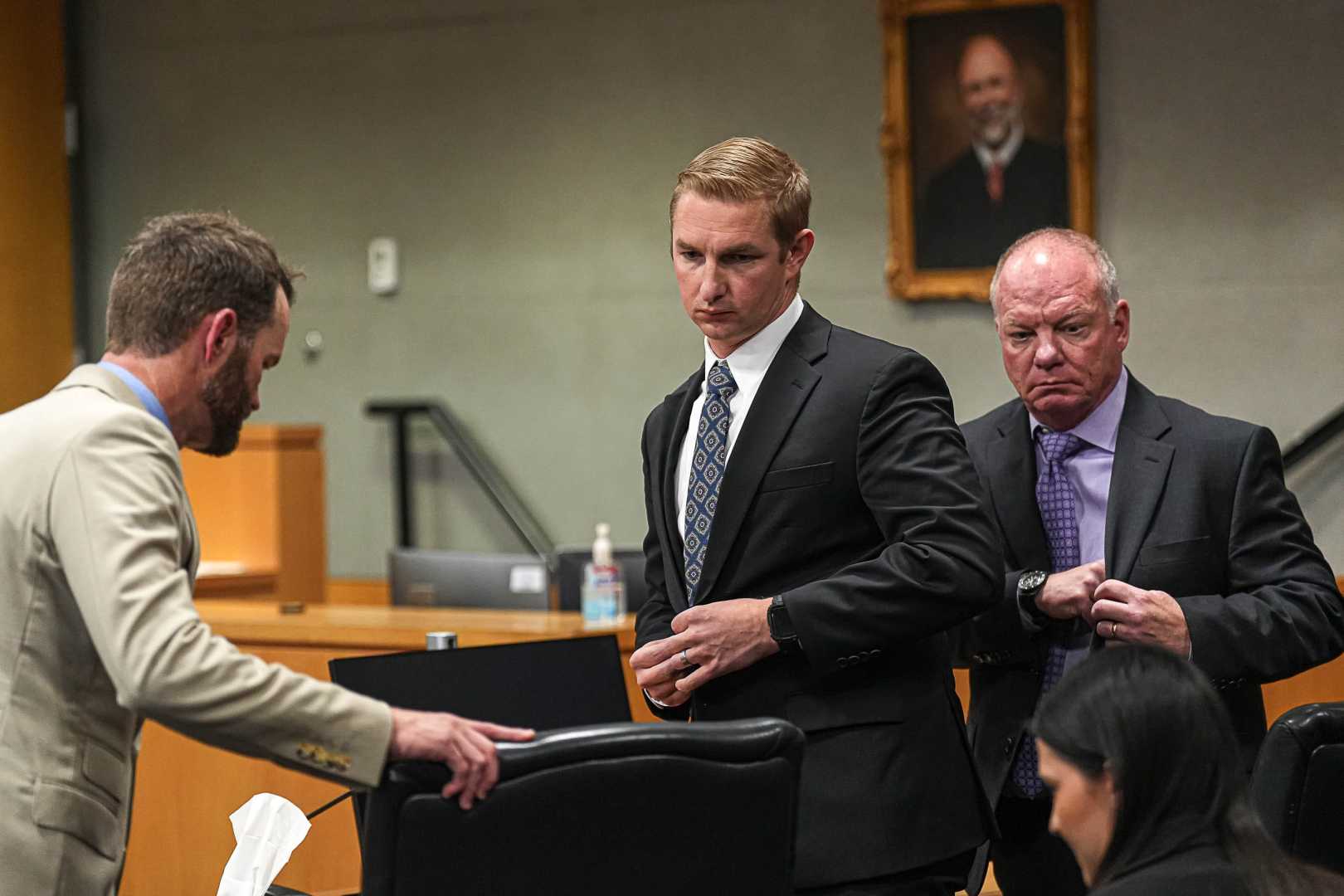News
Austin Police Officer Convicted of Deadly Conduct in 2019 Shooting

Austin police officer Christopher Taylor was found guilty of deadly conduct on Saturday for the fatal 2019 shooting of Mauris DeSilva, a man holding a knife, marking the first conviction of an officer for an on-duty shooting in Travis County. The verdict, announced on the fourth day of jury deliberations, saw Taylor, who has served the Austin Police Department for a decade, maintaining composure as the decision was read. Supporting him were his attorneys, Doug O’Connell and Ken Ervin.
DeSilva, a 46-year-old Sri Lankan researcher and scientist with mental health issues, was reportedly threatening himself with a knife outside the Spring Condominiums in downtown Austin on July 31, 2019. Upon arrival, officers discovered DeSilva in a communal area, still holding the knife to his neck. Officers Taylor and Karl Krycia responded by drawing their firearms, and when DeSilva advanced towards them despite commands to stop, they opened fire. Krycia faces separate charges of murder and deadly conduct related to the incident.
The case has drawn significant attention, notably since it follows a previous trial where a jury deadlocked on a murder charge against Taylor for the 2020 death of Michael Ramos, a case that had intensified social justice protests in Austin. Saturday’s ruling is a landmark conviction for the Travis County District Attorney’s civil rights unit, led by District Attorney José Garza, to prosecute a police officer for use of force.
District Attorney Garza, elected on a platform of police accountability, has overseen an increase in indictments against officers during his first term but has struggled to secure convictions. Taylor’s murder indictment for DeSilva’s death was not pursued in this trial; instead, prosecutors focused on the lesser charge of deadly conduct, a third-degree felony in Texas, which could result in a prison sentence ranging from two to ten years.
The conviction could result in the revocation of Taylor’s peace officer license. As the verdict was rendered, Taylor’s family and Austin Police Association President Michael Bullock were present. DeSilva’s family was not in attendance. In a statement, family attorney Brad Vinson emphasized that officers failed to adequately address DeSilva’s mental health crisis. “Dr. Mauris DeSilva was a brilliant man experiencing a profound mental health episode,” Vinson stated. “He should not have been killed.”
Taylor’s defense team, withholding immediate comment, plans to release a statement later. Meanwhile, Garza’s office expressed appreciation for the verdict, stating that it helps in the healing process for DeSilva’s family and the community.
The Austin Police Department acknowledged the verdict, emphasizing its respect for the judicial process. However, Austin Police Association President Bullock criticized the ruling, claiming it endangered the city and questioning the district attorney’s prioritization of resources.
The trial, beginning on September 25, encountered several disruptions during jury deliberations, including concerns over juror safety and unauthorized technology usage. Defense motions for a mistrial were denied, as were requests from the prosecution for penalties against defense attorneys for social media conduct and possible exposure of jurors to media coverage.












